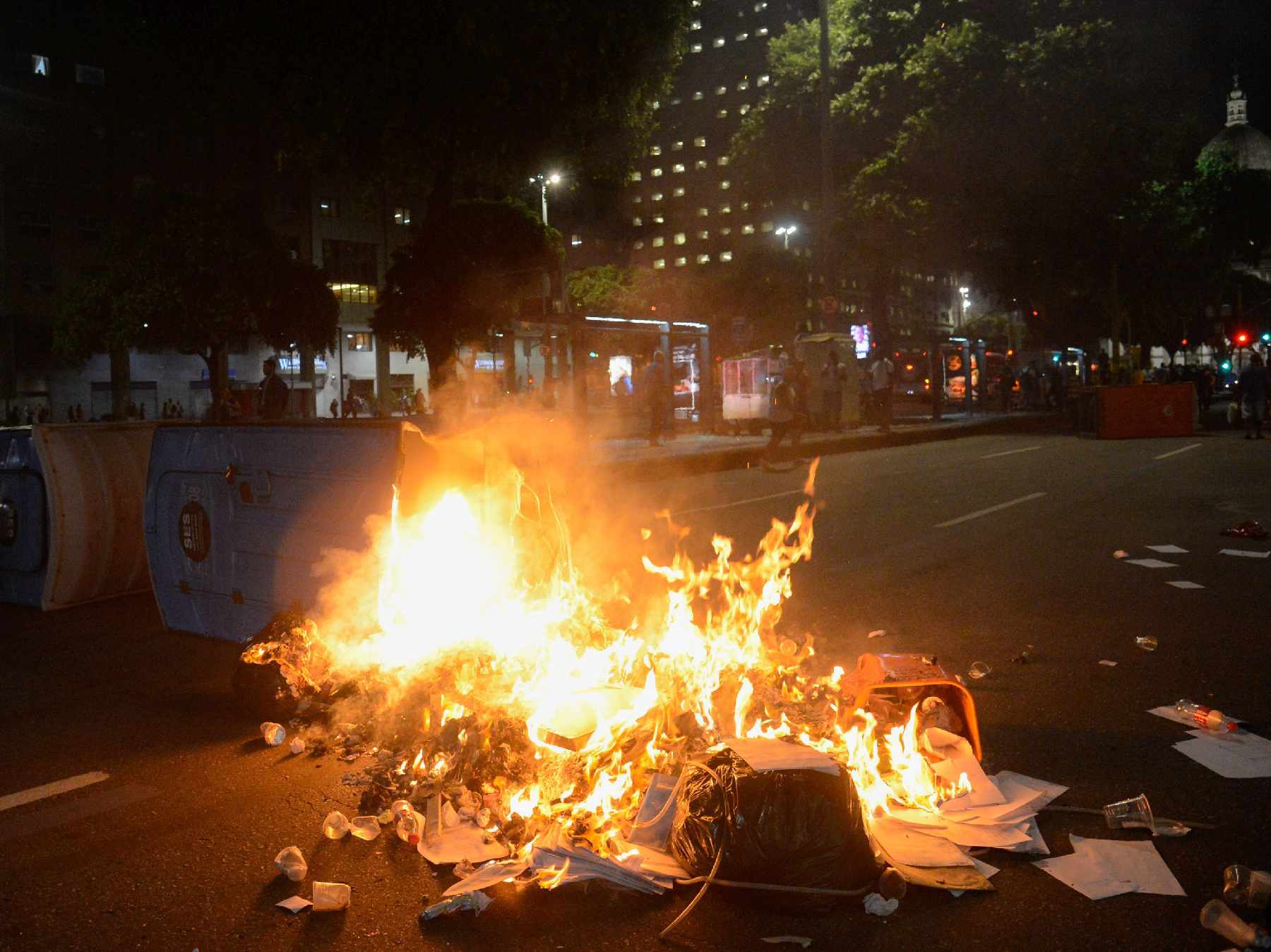Brazilians took to the streets in a nationwide protest on Wednesday against President Michel Temer’s social welfare reform plan and halted public transportation in some of the major cities.
Buses and subway services were disrupted in São Paulo and Rio de Janeiro, the country’s most populous cities. And public transport workers in the cities of Recife, Curitiba and Belo Horizonte went on strike to protest harsh austerity measures in conjunction with the protests.
“This is the first unified mobilization this year and opens the calendar of an intense agenda that we will have in 2017 to denounce the setbacks that penalize workers, such as reforms to the retirement system and labor legislation,” said the organizers in a statement.
Hundreds of protesters also occupied the premises of the Finance Ministry in the capital Brasília, as more than 1,500 people from peasant and homeless groups held protests outside the building.
“While the government justifies the reforms due to the public deficit, it grants tax exemptions to companies, is not involved in the effective fight against tax evasion and forgives the debts of hundreds of companies that owe three times the value of the deficit of the retirement system,” said the organizers.
The protests began in the early morning and lasted until night. Former president Luiz Inácio Lula da Silva participated on a rally in on Paulista Avenue.
At night, in Rio, the military police used tear gas against demonstrators and customers who were in Cinelândia, a neighborhood in downtown Rio de Janeiro. Many people felt ill and needed to be helped, leaving the area weeping and with red eyes.
The police had responded to an attack 10 minutes earlier, by a group of protesters, who had thrown rocks against the military.
Workers’ unions, the Landless Worker Movement known as the MST, as well as the Popular Brazil Front, and the Fearless People Front organized the march, with support from other trade unions.
“The strike will extend to all the states of the country and we hope to have the adhesion of more than 1 million members,” said the head of the National Confederation of Education Workers, Heleno Araújo.
According to Araújo, the 48 affiliated entities of the union have joined the general strike, which was initially scheduled to last 10 days but could be extended further.
The teachers’ union is also holding regional assemblies to decide whether universities and colleges, both public and private, will be closed to protest an education reform promoted by Temer.
Temer’s controversial pension reform plan — introduced to Congress last December — would reduce benefits, raise social security contributions by civil servants and set a minimum age of retirement at 65 years in a country where people work on average until the age of 54 years before retiring.
The plan also eliminates special pensions for the education and agriculture sector, removes retirement benefits based on the minimum wage, which according to the head of the Landless Worker Movement, João Pedro Stédile, almost tripled during the governments of Lula and Dilma Rousseff.
The workers are also demanding Temer’s resignation, since he was appointed after Congress ousted Dilma Rousseff, and demand new general elections.
‘Out with Temer’
Just last month, thousands of Brazilians have seized the country’s Carnaval festivities as an opportunity to protest against President Michel Temer and in defense of the deposed President Dilma Rousseff as part of massive parties and parades in several cities.
During the celebration in the city Salvador, the famous BaianaSystem band shouted with thousands of people “Fora, Temer,” meaning “Out with Temer,” and “Coup-perpetrators shall not pass!”
The lead singer of the band, Russo Passapusso, brought the political debate to one of the world’s most famous parties. He shouted along with thousands of Brazilians, “Sexist, fascist, they shall not pass!”
Musician Caetano Veloso, known for his work in the “Tropicalismo” musical movement and as a political activist, also showed his discontent with the current government, shouting “Fora Temer” to a cheering crowd during his unexpected performance in Salvador.
Demonstrators also called for the country’s constitutional president, Dilma Rousseff, to be reinstated in power with signs saying “Volta, Dilma,” meaning “Dilma, Return.”
Rousseff, who won re-election for a second term in 2014 with more than 54 million votes, was removed from office last August in an impeachment process condemned by many nationally and internationally as a parliamentary coup, but she was not stripped of her political rights, allowing her to run for office again in the future.
Also in Salvador, hundreds gathered to show support for former President Lula, shouting “Olê, olê, olê, olá, Lula, Lula!” Polls indicate that Lula, Rousseff’s predecessor, is Brazil’s favored candidate for the 2018 presidential election.
Michel Temer, on the other hand, who was Rousseff’s running mate for the 2014 presidential election and played a role in orchestrating the parliamentary coup that removed her from office, is barred from running for office for the next two presidential terms for violating electoral finance rules — a fact that did not stop him from being installed as president.
Temer has introduced a series of sweeping privatization proposals and cuts to education, health and other social sectors since he was sworn in last August. The president, who has very low approval ratings in Brazil, is set to complete Rousseff’s presidential term until the next scheduled election in late 2018.
teleSUR






